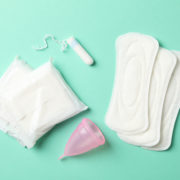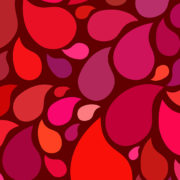PMS (premenstrual syndrome) is the name for the emotional and physical symptoms that happen before or during your period. PMS is caused by the changes in your hormones throughout your monthly cycle and these symptoms are often clues that your period is on its way. PMS can start a few days before your period begins and continue through the first few days of bleeding.
PMS symptoms
You might experience some of these PMS symptoms just before your period and during the first couple of days of bleeding:
So you can see, PMS can have some positive aspects that you may have never heard before! And no matter what PMS symptoms you experience, always remember that you are not alone, as most people do have some PMS symptoms during their period, and they go away after the first few days. Talk about your PMS with your family and friends, and keep an open ear for their experiences too!
PMDD (Premenstrual Dysphoric Disorder) is a severe form of PMS where you experience severe irritability, depression, or anxiety in the week or two before your period starts. Symptoms usually go away two to three days after your period starts. If you think you might be experiencing PMDD we recommend that you consult with your doctor.
How to relieve period & PMS symptoms
Most people have experienced PMS symptoms during their period, but the good part is that they can be managed while you are having them and they go away after the first few days. At BLOOM, we encourage taking a natural approach to your health and wellness, but we understand the importance and place for conventional medicine too. Here are our top tips for making your period as pain-free as possible.
Eat well
- Be sure to eat nourishing foods and hydrate well with water.
- Talk to your guardian or gynecologist about adding specific vitamins and herbs like vitamin B1, fish oil, fenugreek, ginger, valerian, zataria, and zinc sulfate into your diet or supplement regime. Magnesium supplements and Vitamin B1 may help to reduce cramps, bloating, and other PMS symptoms.
Listen to your body
- Get extra rest, listen to what your body needs, and be extra compassionate with yourself.
- Exercise or participate in any activity that increases your heart rate and blood flow. This can help alleviate PMS symptoms and period cramps.
- Practice yoga, meditation, or deep breathing techniques. Feel free to utilize our amazing resources for these practices — they have been instrumental in improving and enriching our lives, and we are so excited to share them with you!
Use heat to soothe cramps
- Use a heating pad on your abdomen.
- Take a hot bath and add some Epsom salts to soothe any PMS discomfort.
- Ask your parent/caregiver if you can take over-the-counter pain medicine like ibuprofen (Advil), naproxen (Aleve), or acetaminophen (Tylenol).
See a specialist if needed
- Try acupuncture or see a herbalist for alternative treatment for PMS symptoms
- Talk to your gynecologist to help manage your period and PMS symptoms









